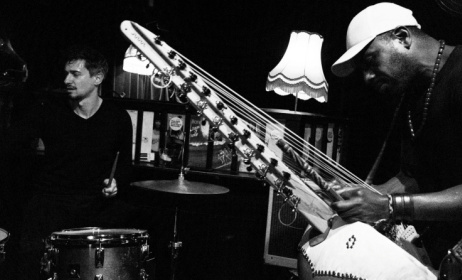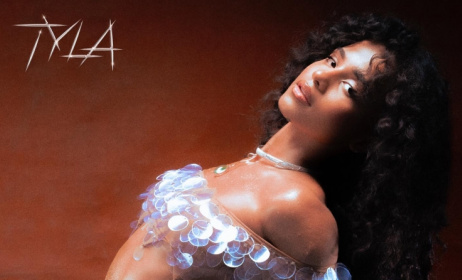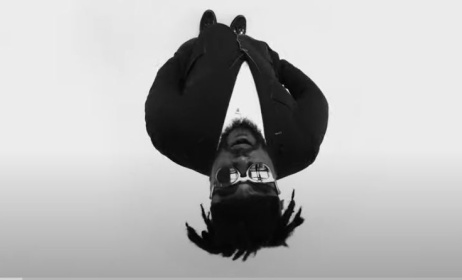Review: Olamide’s Lagos Nawa is part apology, part disappointment
Olamide is defiant. How do you record a 17-track album with only two or three rap songs in a time rappers are getting slated for turning into singers prompted by MI Abaga's ‘You rappers Should Fix Up your Lives’?
 Olamide's Lagos Wa "is compensation". Photo: YBNL
Olamide's Lagos Wa "is compensation". Photo: YBNL
Olamide has made Lagos Nawa so detractors foam in the mouth as he smiles to the bank.
After the release of his sophomore in 2012, the then rapper’s plan was laid bare: rap for the culture; sing for the masses (those who actually buy his CDs). But he always made sure at least two-thirds of his album tracks are rap songs. This way, he can lay claim to rap greatness—which is why he reminds listeners on ‘Fe nu shey Street’, the first song on Lagos Nawa that, “mo korin gan, mo rap gan.” [I sing and rap well.]
This formula has worked well for his yearly albums, but now he has flipped the script. The result is a 17-track album with 15 non-rap songs bordering on the banal, the pedestrian, the embarrassing and the atrocious.
If the plan for Lagos Nawa was to be playful, it’s only on a handful of songs like ‘Bend it Over’ with Reminisce providing perhaps his most obscene verse yet that that is achieved. If the plan was to relax and amuse himself after a glorious Glory album, it’s a costly amusement that has led to unbelievably mundane songs like ‘Saysaymaley’, ‘Lagos na Wa’, ‘Everyday is not Christmas’ and ‘On a must Buzz’. His performance with Phyno on ‘On a must Buzz’ makes their first collaboration ‘Ghost mode’ look like a lucky mistake.
‘Shine’, one of the album’s rap songs, is the poorest of this kind of songs in which he raps throughout without a chorus. Yes, “Punchline o ja wo mo” as he declared on ‘Local Rappers’, but how about wordplay and metaphor and rhymes? ‘Shine’ is a rap song deficient of any remarkable rap element. And Olamide seems to have either lost it or has completely given up on trying to balance between being the masses' favourite and remaining culturally relevant in rap.
Three Love songs appear on Lagos Nawa. One of them, ‘Yagaga’, is closest to his best love song ‘Melo Melo’ even though it is miles behind in composition and delivery. One of the other two, ‘The One’, appears to be crafted after 50 cent’s ‘21 questions’; the other, ‘Enimimomi’, is a discordant piece of music.
In 2014, when Olamide released ‘Eleda Mi’, the reception was great. The song was laden with Fuji drums and other percussion instruments that were in harmony with the lyrics because his verses weren’t wordy. A similar song, ‘Oro Pawpaw’, on Lagos Nawa is too long and wordy, thereby overriding the beat. But the chorus is so profound and reminiscent of ‘Esu Pofo’ from Baddest Guy Ever Liveth that the singer's errors are easily pardoned.
On ‘Fine Fine Girls’, Tiwa Savage provides a saving grace moment. Though Olamide delivers a trite verse, Tiwa Savage quickly dismisses him with her stretchy voice.
To understand Lagos na wa, two sentences from ‘Wo’ should be helpful: “Won lon wa wa niigboro. Won lo ti miss wa ni igboro.” [They say the hood is looking for us. They say the hood has missed us.] The implication is that having tried to please the culture with a core hip-hop album like Glory, Olamide felt alienated from his major fan base—the streets and Lagos Nawa is his apology. For Olamide who has said that no matter what he and his people from the streets do, “they’ll never respect us—this industry hates us”, Lagos Nawa is redemption. Even the very first sentence in the album gives hints to what his goal is: “ka le ri ba tise, ka le lo wo.” [So we can make a headway. So we can have money]
In the words of the great MI Abaga, “even great artistes make fake art.” Lagos Nawa is far from being a great work of art. A snob would puke at it being called a work of art in the first place. If it were a book, a literary critic would call it a non-book. But, as compensation to the streets for neglecting them, it’s a triumph. To adapt his own self-praise, Olamide remains like Justin Bieber in Ibadan.





























Comments
Log in or register to post comments